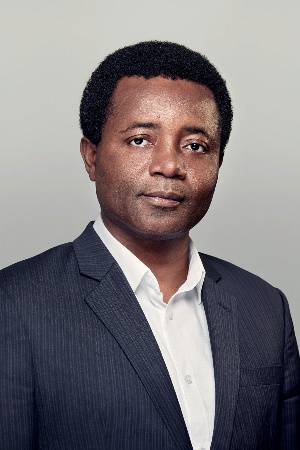 Head of Client Coverage at First National Bank Ghana, Richard Kokoih
Head of Client Coverage at First National Bank Ghana, Richard Kokoih
The Head of Client Coverage at First National Bank Ghana, Richard Kokoih, has stressed the need for the government to work closely with the private sector to reduce the country’s infrastructure deficit.
According to Mr. Kokoih the government must see the private sector as a critical partner in its infrastructure development projects, which should follow the public-private partnership (PPP) model for funding and execution.
He says:
“The use of PPPs allows the state to minimize costs, shift development risk and managerial responsibility, and attract investment. Infrastructure by its nature stimulates growth and jobs, and boosts GDP while creating lasting benefits to communities.”
Speaking in an interview, Mr. Kokoih said a focus on infrastructure development can help boost the economy in the post-Covid-19 era.
“Infrastructure spend has a strong multiplier effect on the economy in general,” he said.
“People need to design, build, finance, operate and maintain these projects for a long time. In particular, some Public Private Partnerships (PPPs) projects have been successful in Ghana, and there is scope to leverage the lessons learnt to drive strategic infrastructure projects which have high requirements for manpower.”
Mr. Kokoih also commented on the Ghana Investment Infrastructure Fund (GIIF), a corporate body wholly owned by the government, set up in 2014 with a mandate to invest in infrastructure projects.
Its duty is to mobilize, manage, coordinate and provide financial resources for investment in a diversified portfolio of infrastructure projects in Ghana for national development.
Addressing Ghana’s infrastructure challenges will require annual infrastructure expenditure of about $2.3 billion. The country currently spends about $1.2 billion per year on infrastructure with a $1.1 billion gap, which needs to be addressed for accelerated growth and national development.
Mr Kokoih said: “We don’t have much time to get things moving. We need to be bold. GIIF among others is expected to focus on sectors such as energy, eco-tourism, education, affordable housing and waste water management. But we need to ensure priority is given to those projects which improve the lives of many people. The private sector needs to be consulted too as they stand ready to help.”
Mr. Kokoih emphasised the point that the government should not try to assume the full burden of infrastructure spending. The financial sector, he said, is able and willing to support efforts to improve infrastructure in the country. This, he pointed out, is one key way for the government to leverage its available debt capacity, which is quite limited.
According to Mr. Kokoih, banks, especially the First National Bank, a subsidiary of the FirstRand Group of South Africa, have dedicated infrastructure financing teams as well as the expertise to help government and related entities like GIIF achieve its goal. Greater momentum can be achieved if the government partners the financial sector, he stressed.
In March this year, the International Monetary Fund (IMF) said that despite Africa having very high levels of debt, it should 'spend' its way out of economic malaise by expanding fiscal deficits to counter the impact of the Coronavirus pandemic.
“It's an unusual advice from the IMF,” Mr. Kokoih says, “but investing in lasting infrastructure is much better than just spending for the sake of it.”